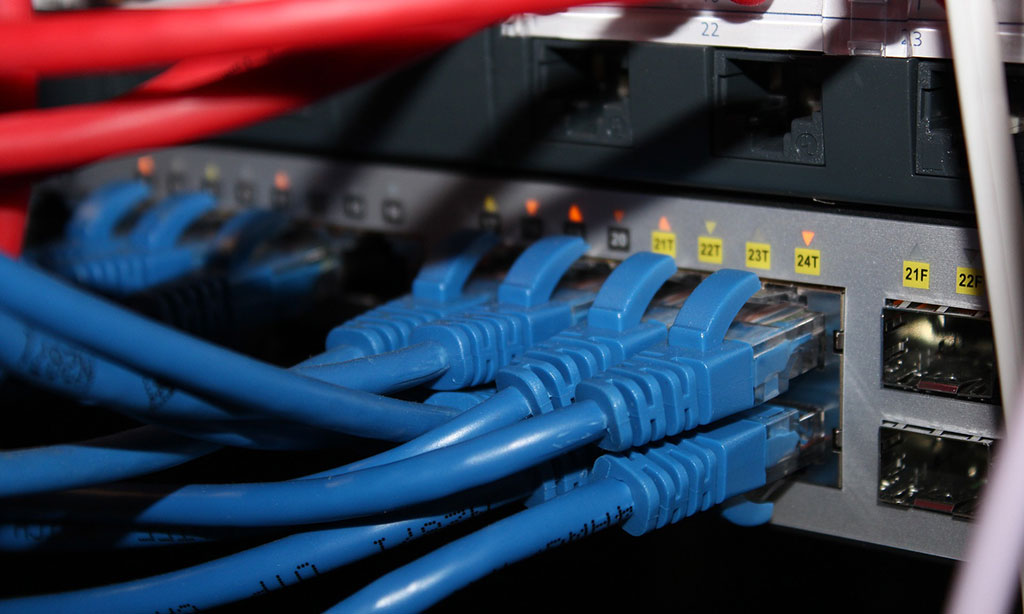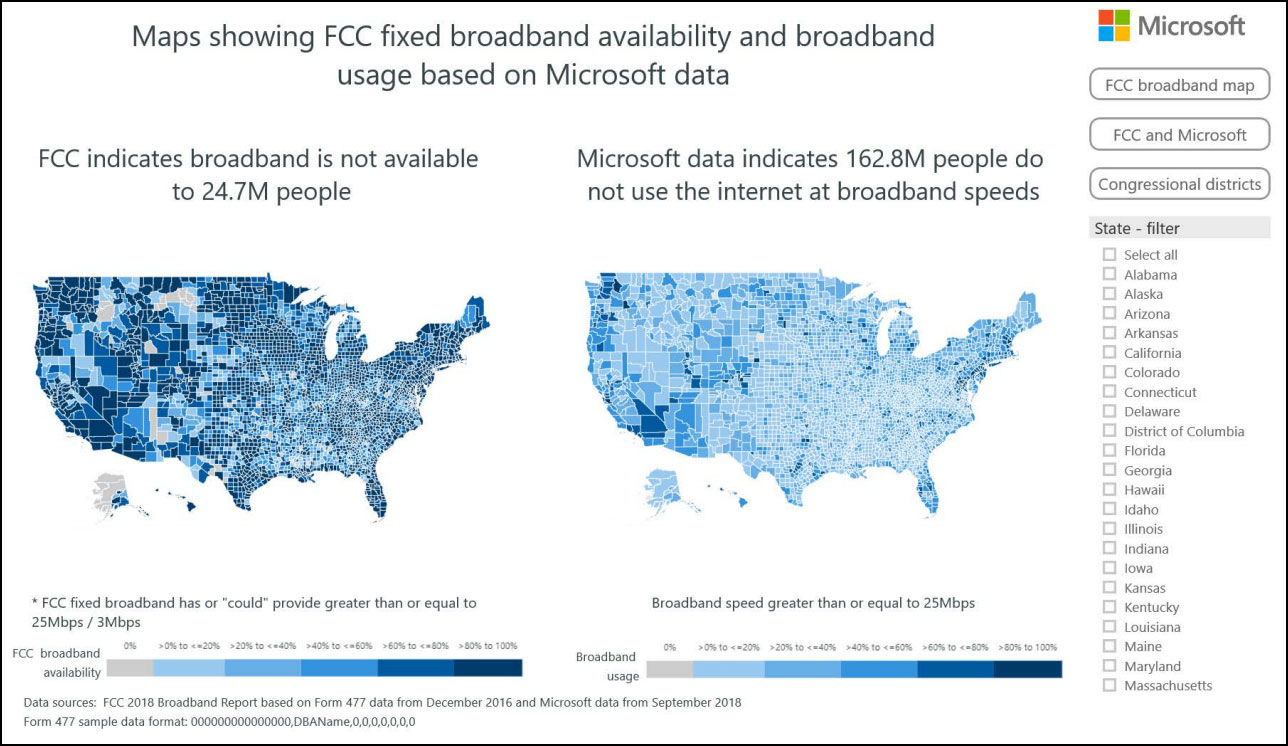Microsoft says FCC’s broadband report ‘overstates’ high-speed availability
Microsoft's broadband usage numbers don't align with the FCC's.

Just last month, the Federal Communications Commission issued a draft of its rosy 2019 Broadband Deployment Report, and in it FCC chairman Ajit Pai noted that the digital divide between Americans with and without access to high-speed internet has "narrowed substantially." Before Pai breaks his arm patting himself on the back, however, Microsoft says the FCC should take a closer look at the numbers and how they're evaluated.
According to the FCC, Americans lacking access to a fixed broadband connection of at least 25Mbps downstream and 3Mbps upstream dropped to 19.1 million in 2017, down from 26.1 million the year before. The numbers are a little fuzzy, though, as the FCC estimated in December of last year that 24.7 million Americans lacked access to broadband.

Either way, Microsoft says its own data paints a vastly different picture. Instead of 24.7 million Americans, or even 19.1 million (or any number in that ballpark), Microsoft says "162.8 million do not use internet at broadband speeds."
We've called BS on this report ourselves, though not necessarily because of potentially flawed data. Even if the 19.1 million figure is correct, that's still a lot of people who lack access to broadband. Pai contends that figure proves the FCC's "approach is working." If by "working" he means that the number of people lacking broadband is nearly equivalent to the population of the entire state of Florida (21 million) or New York (20 million), then sure, it's working like a charm!
Or course, availability and usage are two very different things. Nevertheless, Microsoft says in a letter (PDF) spotted by Wendy Davis at MediaPost that the FCC's report "appears to overstate the extent to which broadband is actually available throughout the nation."
In other words, while availability and usage are different things, the massive divide between the two suggests that speeds that meet the FCC's benchmark for broadband are not as available as the report makes them out to be.
In the letter, Microsoft also calls for the FCC to tap into third-party data "to show a more transparent view of today's actual gaps in broadband progress." As part of that, Microsoft would like to see the FCC factor in usage, which would take into account "quality, cost, and time" and not just physical availability.
The biggest gaming news, reviews and hardware deals
Keep up to date with the most important stories and the best deals, as picked by the PC Gamer team.
Microsoft is not the only one taking umbrage with the FCC's numbers. In a previous filing, the advocacy group Free Press claimed that the report relied, in part, on erroneous data. Specifically, Free Press took issue with Census data by internet service provider BarrierFree, that was drawn upon for the report's conclusion.
"This claimed level of deployment stood out to us for numerous reasons, including the impossibility of... going from serving zero Census blocks as of June 30, 2017, to serving nearly 1.5 million blocks containing nearly 20 percent of the US population in just six months time," Free Press wrote.
MediaPost says BarrierFree admitted in an email that it made a mistake, and blamed the government shutdown for not being able to submit revised documents to the FCC before the report went live. This, according to Free Press, resulted in a "massive overstatement" in the change in broadband deployment.
Paul has been playing PC games and raking his knuckles on computer hardware since the Commodore 64. He does not have any tattoos, but thinks it would be cool to get one that reads LOAD"*",8,1. In his off time, he rides motorcycles and wrestles alligators (only one of those is true).


